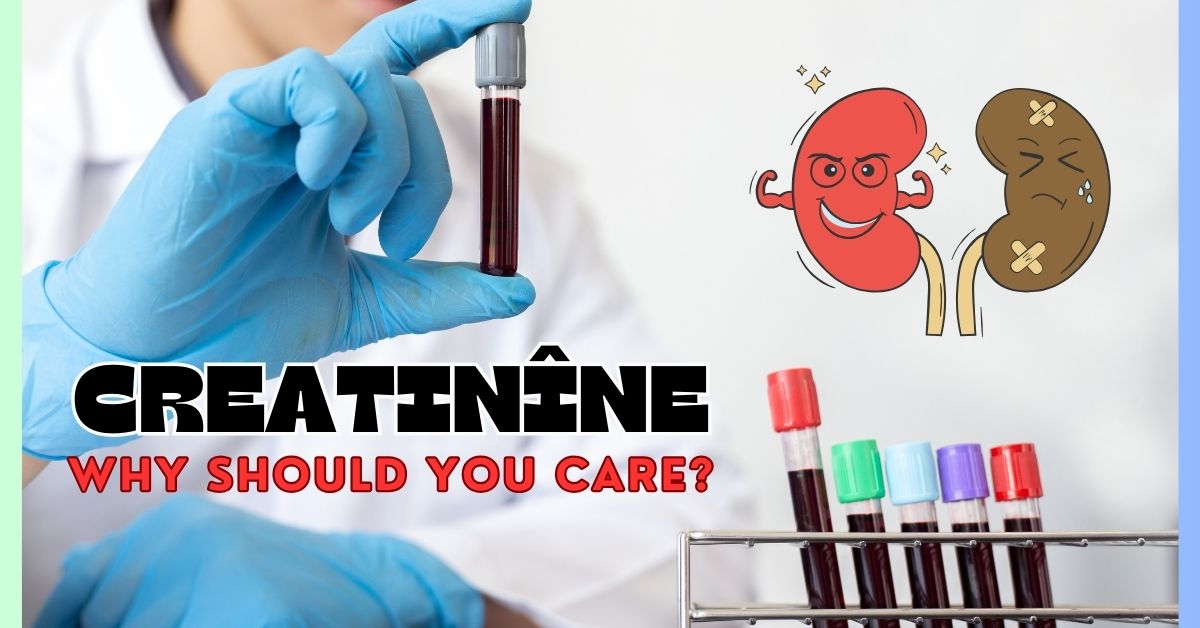What is Creatinîne, and Why Should You Care? (2024)

Imagine creatinîne as the “leftover bits” your muscles make when they do their daily job. Think of it like crumbs left after eating a cookie—your body has to sweep them up! These crumbs are called creatinîne (or creatinine, as it’s commonly spelled), and they’re a normal part of muscle activity. Your kidneys play the role of the cleaner, filtering out creatinîne from your blood and tossing it into your urine. Pretty cool, right?
But what happens when your kidneys don’t do a great job cleaning up? Well, creatiniine levels go up, and that’s when we start paying attention. Let’s dive into what creatiniîne is, why it’s important, and some easy-peasy ways to keep your kidneys happy!
Table of Contents
What’s All the Fuss About Creatinîne?
Creatinîne is a waste product made when creatine—a chemical that helps your muscles work—breaks down. Creatine is like the fuel for your muscles, and creatiniîne is just the empty can left behind. Normally, it gets filtered out by your kidneys and leaves your body when you pee. If your kidneys are in tip-top shape, they do this job without any issues.
Why Does it Matter?
High creatinîne levels can mean that your kidneys aren’t working as well as they should. It’s like your body’s signal that the cleanup crew (your kidneys) is slacking off a bit. Doctors use creatiniine levels in blood and urine tests to check on your kidney health. So, keeping an eye on those levels is a smart move!
How Do We Test Creatinîne Levels?
There are two main ways doctors check creatinîine:
- Serum Creatinîne Test – This blood test measures how much creatinîine is in your bloodstream. High levels might suggest your kidneys are having a tough time doing their job.
- Creatinîne Clearance Test – For this test, you’ll need to collect all your pee for 24 hours (yep, all of it!) and then get your blood drawn. This helps doctors see how well your kidneys are clearing creatinîine from your body.
Sounds complicated? Don’t worry—just think of it like your body’s report card for kidney health!
Why Your Creatinîne Levels Might Be High (And It’s Not Always Bad News!)
Here’s a fun fact: high creatinîne levels aren’t always a sign of kidney trouble. Sometimes, it’s just your lifestyle doing its thing:
- Meat Lovers, Take Note! Eating lots of meat can bump up your creatinîne levels. Since meat has creatine, your body makes more creatinîine when you munch on those steaks and burgers.
- Gym Buffs, Listen Up! If you’ve been hitting the gym hard, your muscles might be breaking down creatine faster, which raises your creatinîine. Your muscles are just showing off!
- Medications Can Be Tricky – Some meds can make your creatiniine look high even when your kidneys are fine. Always let your doctor know what you’re taking—they’ll figure it out!
Everyday Tips to Keep Creatinîne in Check
Now that we know what creatiniine is and why it matters, let’s look at some simple, everyday tips to keep those levels in the healthy zone:
- Stay Hydrated – Water is your best buddy here. Staying well-hydrated helps your kidneys flush out creatinîne. So, keep that water bottle close!
- Mind Your Meat – If you’re a big meat eater, try cutting back a little. Think of it as giving your kidneys a mini vacation.
- Go Easy on Supplements – If you’re into fitness supplements, especially creatine, you might want to ease up. Too much can lead to higher creatinîine, and nobody needs that stress!
- Keep Moving, But Don’t Overdo It – Exercise is great, but balance is key. Your kidneys will thank you for not going overboard!
When to Talk to a Doctor
If you’re feeling tired, have swelling, or notice any changes in your urine (like peeing less or seeing blood), it’s a good idea to check in with a doctor. These could be signs that your creatiniîne levels are off the charts, and your kidneys might need some help. But remember, these symptoms can also be linked to other things, so don’t jump to conclusions—just get checked out.
The Bottom Line
Creatinîne is a tiny, but mighty part of how our bodies work. Keeping your creatiinine levels in check is mostly about keeping your kidneys happy: stay hydrated, eat a balanced diet, and enjoy exercise in moderation. And if you ever feel like something’s not right, don’t hesitate to chat with a healthcare professional.
Your kidneys are like the unsung heroes of your body’s cleanup crew—give them some love, and they’ll keep you running smoothly! And remember, whether you spell it “creatinîne” or “creatinine,” the most important thing is keeping those kidneys in great shape.
Stay healthy, stay curious, and keep learning!




Leave a Comment